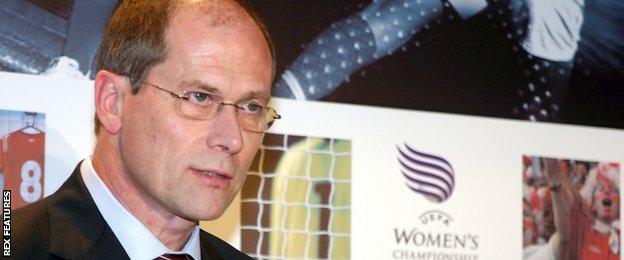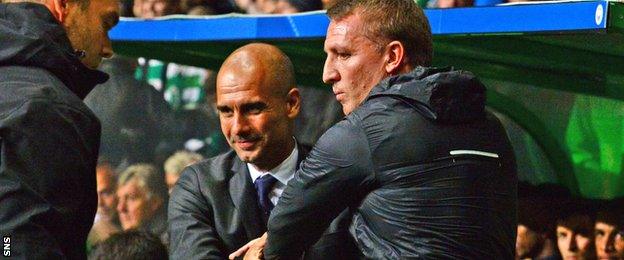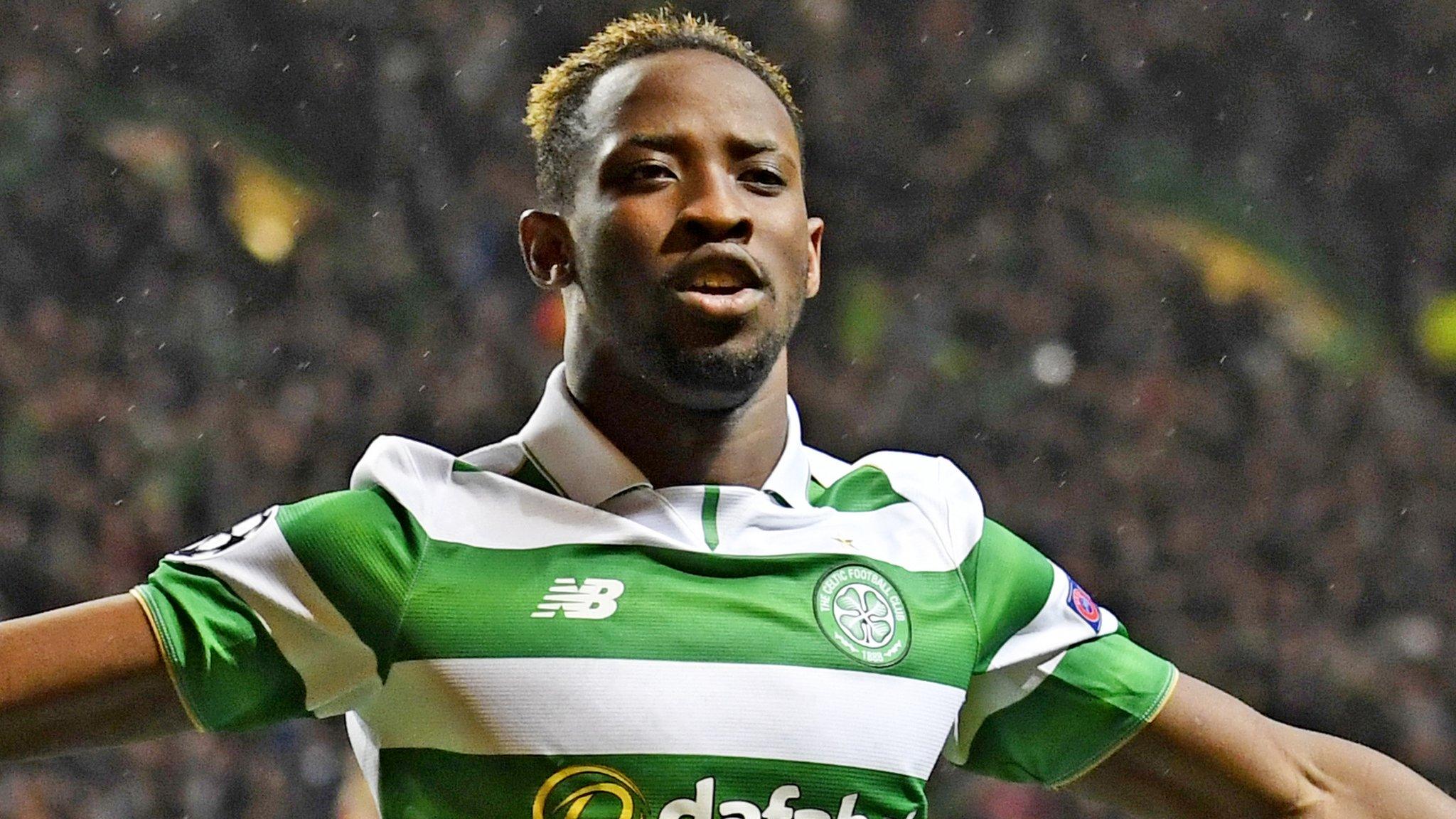Fears over Scottish clubs' future in Champions League
- Published

Celtic drew 3-3 win Manchester City in Group C on Wednesday
It could soon become impossible for Scottish clubs to reach the Champions League, if proposed reforms are not revoked, the chairman of the European Professional Football Leagues (EPFL) has told BBC Scotland.
Lars-Christer Olsson, a former general secretary of Uefa, says plans to change the qualification criteria for European competition will lead to a "closed shop".
The Swede insists the reforms are opposed by even the most powerful leagues in Europe, whose clubs stand to gain most from four automatic Champions League places.
Asked whether it could become nearly impossible for clubs like Celtic to reach the group stage, he replied: "Yes. That's definitely one of the results."
What are the changes?
Initial changes to the Champions League format, to begin in 2018, mean 16 automatic qualification spots go to the top four clubs in the top four leagues (currently Spain, England, Germany and Italy).
It means the champions of Scotland will be involved in a qualification battle for eight places rather than the current 10.
But Olsson fears this is simply the first step in marginalising clubs in smaller leagues, with further changes from 2021 to be decided next year.
"That is why it is so extremely important they are revoking the decision already now because otherwise we are changing the playing field," he said.
What is the main concern?

Lars-Christer Olsson chairs the group representing 32 European leagues
A key concession by Uefa in the recent negotiations was to preserve the "champions' route", which in recent years has ensured Celtic have faced teams ranked below them, in theory making the qualification process easier, although they were eliminated in the past two seasons by Maribor and Malmo.
However, Olsson, who chairs the organisation that represents the interests of 32 European leagues, and Neil Doncaster, chief executive of the Scottish Professional Football League and an EPFL board member, believe the champions' route could also be at risk.
"It's absolutely vital for all our leagues in the second tier that that remains because, if you've got access to Europe by winning your domestic competition, that enhances the domestic competition," Doncaster told BBC Scotland.
"As soon as you remove that access then, yes, you might still get prize money, the domestic glory of being champions of Scotland, but if you're not getting access to Europe then a big part of what it means to be champions of Scotland is removed.
"My fear is that, unless we're united, unless we put as much pressure now on Uefa as we can, we'll end up sleepwalking into a closed shop for the next cycle, from 2021 onwards."
What is the potential upshot of this?
Both men are concerned that the most powerful clubs in Europe are looking to create an NFL-style competition, where only certain clubs are guaranteed a place and others, like Celtic, will end up on the outside looking in.
"It will be something similar to what is now the case in North American sports - something I don't want to see in Europe for several reasons," said Olsson.
"That's why it's so important that we all do what we can now before it becomes a reality," agreed Doncaster.
"If we do nothing, the bigger voices, the bigger influences within the game in Europe will have their way and the bigger historic clubs in the bigger leagues clearly favour the guaranteed route into that top table.
"But it has to be on merit. Football is based on merit in Europe. That's the tradition, unlike in some other countries, where you have a closed shop."
What do Celtic say?

Brendan Rodgers (right) thinks Celtic deserve to face sides like Pep Guardiola's Manchester City
After the 3-3 draw with Manchester City, Celtic manager Brendan Rodgers was adamant that the tournament would be diminished by the club's exclusion.
"There has to be an opportunity for clubs like Celtic, one of the great clubs in world football, to play in this competition," he said. "The competition is better for a club like Celtic in it.
"Of course you have to earn the right to be in it, you have to qualify, but it shouldn't be made near-on impossible."
What's the chance of Uefa changing its mind?
Olsson is bullish about the future and the chances of ensuring Uefa is forced to back-pedal.
"I think that is also a major mistake by Uefa, thinking they could change things without any proper consultation with the football family and that includes their members," he argued.
"The owners of Uefa are the associations and they have not been properly involved and the most important organisers of professional football in Europe are the leagues and they have not been properly involved, so I think they will find out they have started a battle they cannot win."
And if Uefa continues with the proposed reforms?
"I think we will see a development of a totally different market for club competitions in Europe and I'm not so sure the 20 big clubs or Uefa will be at the head of that development because it's a real provocation what has happened now," he said.
"So for the good of football and the good of Uefa it has to be revoked, I think.
"It's not only the smaller and mid-sized associations and leagues reacting. It's also the big ones because this is the first step towards something totally different, which we don't think is in line with the European tradition.
"There has been very hard reaction also from the French league, for example, from the French Federation, so they (Uefa) have made a major mistake, which has to be corrected."
- Published29 September 2016

- Published29 September 2016

- Published29 September 2016
